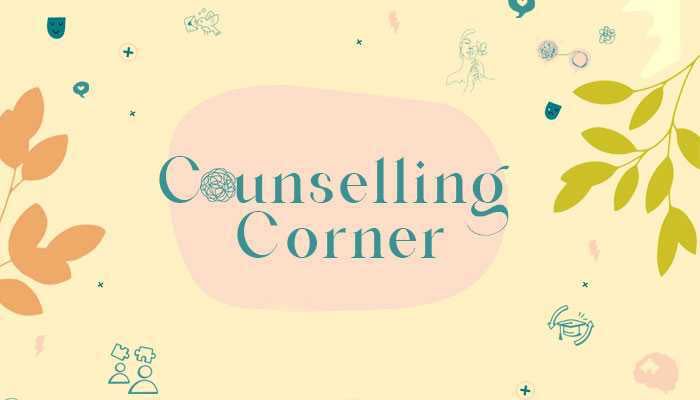'I want to begin journaling, but overthink how to do it right. Please help!'
"How exactly would writing some words on a piece of paper help me stay motivated?" asks a woman who needs motivation to begin journaling
July 23, 2025
Hi Haya,
I've heard a lot about the benefits of journaling and how it helps us stay on track to achieve our goals. But whenever I plan to start a journal, I end up feeling overwhelmed. It's been months since I got myself a journal, but haven't written anything on a single page as yet.
I always end up overthinking what I should and shouldn't write in the journal. How exactly would writing some words on a piece of paper help me stay motivated and on track to make my dreams come true? All the videos I see on YouTube promoting journaling feel like a sham, when the idea just feels very superficial.
Do you have any tips on how I can begin to journal and what benefits it would actually bring to my life? Thank you!

Dear anon,
You've heard right — journaling is a powerful technique with a host of benefits. Regular writing is known to reduce symptoms of anxiety, depression, build clarity amongst many other things, and it can also serve as a powerful tool for emotional regulation. Keeping a diary can support both your mental well-being and your personal growth. It allows for greater self-awareness and a deeper connection with your inner world.
That said, I completely understand where you're coming from.
With so much content out there promoting journaling as a magic fix, it can feel overwhelming — even performative. The pressure to "do it right" can leave you paralysed before you even begin. But here’s the truth: there’s no one correct way to journal. It’s far simpler than it's made out to be.
Let’s come back to what you’ve shared.
You already have a notebook, but overthinking keeps you stuck. I sense two things happening here:
- There may be some internal pressure or perfectionism — a belief that journaling needs to look a certain way.
- I also sense a subtle resistance in your tone — a kind of emotional overwhelm that may be masking something deeper.
So, I’d gently invite you to ask:
What is this overwhelm trying to tell me?
Could there be something you're avoiding or suppressing that makes it hard to begin?
Sometimes overthinking is the brain’s way of protecting us from feeling things we may not be ready to face. Avoidance is a fear-based response to what we would be faced to feel if we looked within. And so we get stuck in loops of “shoulds” and “shouldn’ts.” If that resonates, I’d encourage you to pause, sit with that discomfort, and ask yourself: What am I afraid might come up if I did start writing? Just being present to this question can be a powerful first step.
And when you feel ready, challenge yourself to break the pattern — not perfectly, just honestly. Start small. Sometimes the best way to create change is by simply just doing it and taking action, even if it’s messy.
So how can you begin?
Let’s keep it easy and non-intimidating. Here are a few journaling ideas you can try:
Set an intention
You mentioned having goals — write them down. Break them into areas like health, career, relationships, or finances. What do you want in each area?
Gratitude journaling
List three to five things you’re grateful for today.
Dream journaling
What do you wish for yourself? Let yourself imagine.
Emotional check-ins
How are you really feeling today? What’s going on in your inner world?
Prompted reflection
Try: What do I fear most right now — and why? Or what brings me joy and why?
Visioning
If you woke up tomorrow with everything you desire, what would your day look like? Where would you be? Who are you with? What are you doing?
There’s no need to write perfectly. Just let it be real. Let your thoughts have space without judgment.
So what can journaling actually do for you?
Well, more than just a mental exercise, journaling can bring measurable benefits to your physical, emotional, and cognitive well-being. Research has shown it can:
- Improves sleep: Especially when done before bed to offload worries.
- Regulate your nervous system: Expressive writing lowers cortisol (stress hormone) levels and activates the parasympathetic nervous system (your calming state).
- Strengthens your immune system and reduces inflammation.
- Reduces symptoms of anxiety, depression, and PTSD (especially when paired with therapy).
- Regulates emotions: Naming what you feel. For example, writing down "I’m anxious" can reduce its intensity.
- Reduces overthinking: Writing thoughts out helps you sort through mental clutter and gain perspective.
- Increases motivation: Reflecting on why you want something keeps your drive alive, especially during setbacks.
- Eases stress and burnout: Writing down what you’re feeling allows you to get it out of your system.
- Creates emotional release: A space to process unmet needs and release pent-up emotions.
- Improves self-distancing: It can help you reflect more objectively
- Boosts emotional intelligence: Becoming more in tune with your inner landscape
- Enhances memory and mental clarity: Helps you become more aligned with what you want
- Deepens self-awareness: The process of writing about experiences, reflecting and then rewriting may lead to improved self-awareness, understanding your triggers and getting to know yourself deeper.
- Improves communication and relationships: Writing about your experiences and emotions can help you better understand and communicate with others.
- Increases productivity: By helping you prioritise and set intentions and knowing what needs to be done.
So yes, journaling isn’t just hype — it has real, tangible benefits. But like anything else, it takes time and practice. And like I mentioned, there is no one right way.
Journaling doesn’t have to happen daily to be effective. Consistency doesn’t mean doing something daily with perfection — it means returning. That could be two to three times a week over an extended period of time or just whenever you feel called to, find what works for you.
Start with just a few minutes. Let your pen meet the page without expectation. And trust that over time, the clarity, insight, and emotional release will follow.
Wishing you ease and courage on this journey.
Good luck!
— Haya

Haya Malik is a psychotherapist, Neuro-Linguistic Programming (NLP) practitioner, corporate well-being strategist and trainer with expertise in creating organisational cultures focused on well-being and raising awareness around mental health.
Send her your questions to [email protected]
Note: The advice and opinions above are those of the author and specific to the query. We strongly recommend our readers consult relevant experts or professionals for personalised advice and solutions. The author and Geo.tv do not assume any responsibility for the consequences of actions taken based on the information provided herein. All published pieces are subject to editing to enhance grammar and clarity.













